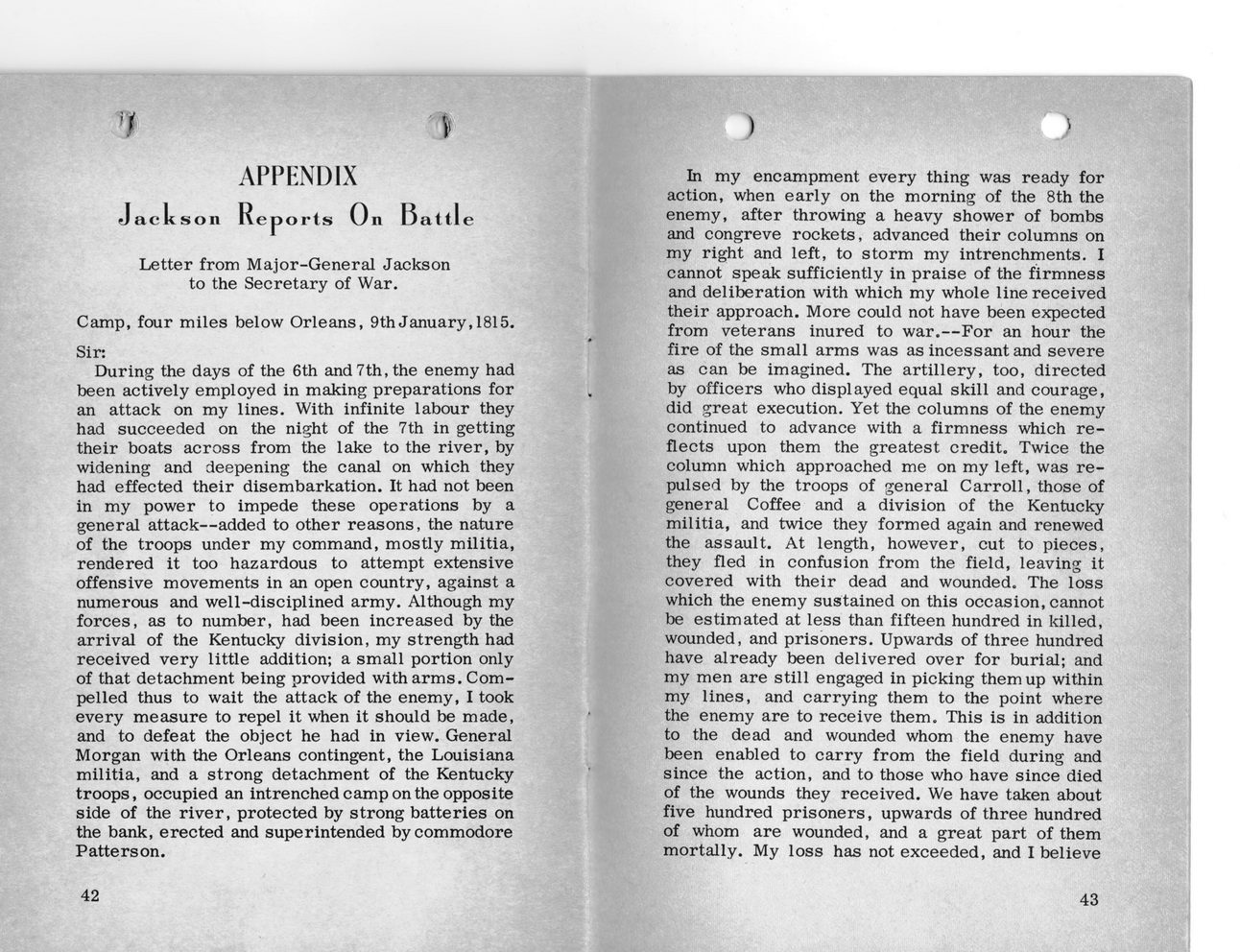This text was obtained via automated optical character recognition.
It has not been edited and may therefore contain several errors.
APPENDIX Jackson Reports On Ba ttle Letter from Major-General Jackson to the Secretary of War. Camp, four miles below Orleans, 9th January, 1815. Sir: During the days of the 6th and 7th, the enemy had been actively employed in making preparations for an attack on my lines. With infinite labour they had succeeded on the night of the 7th in getting their boats across from the lake to the river, by widening and deepening the canal on which they had effected their disembarkation. It had not been in my power to impede these operations by a general attack?added to other reasons, the nature of the troops under my command, mostly militia, rendered it too hazardous to attempt extensive offensive movements in an open country, against a numerous and well-disciplined army. Although my forces, as to number, had been increased by the arrival of the Kentucky division, my strength had received very little addition; a small portion only of that detachment being provided with arms. Compelled thus to wait the attack of the enemy, I took every measure to repel it when it should be made, and to defeat the object he had in view. General Morgan with the Orleans contingent, the Louisiana militia, and a strong detachment of the Kentucky troops, occupied an intrenched camp on the opposite side of the river, protected by strong batteries on the bank, erected and superintended by commodore Patterson. 42 ) ) In my encampment every thing was ready for action, when early on the morning of the 8th the enemy, after throwing a heavy shower of bombs and congreve rockets, advanced their columns on my right and left, to storm my intrenchments. I cannot speak sufficiently in praise of the firmness and deliberation with which my whole line received their approach. More could not have been expected from veterans inured to war.?For an hour the fire of the small arms was as incessant and severe as can be imagined. The artillery, too, directed by officers who displayed equal skill and courage, did great execution. Yet the columns of the enemy continued to advance with a firmness which reflects upon them the greatest credit. Twice the column which approached me on my left, was repulsed by the troops of general Carroll, those of general Coffee and a division of the Kentucky militia, and twice they formed again and renewed the assault. At length, however, cut to pieces, they fled in confusion from the field, leaving it covered with their dead and wounded. The loss which the enemy sustained on this occasion, cannot be estimated at less than fifteen hundred in killed, wounded, and prisoners. Upwards of three hundred have already been delivered over for burial; and my men are still engaged in picking them up within my lines, and carrying them to the point where the enemy are to receive them. This is in addition to the dead and wounded whom the enemy have been enabled to carry from the field during and since the action, and to those who have since died of the wounds they received. We have taken about five hundred prisoners, upwards of three hundred of whom are wounded, and a great part of them mortally. My loss has not exceeded, and I believe 43

Battle of 1814 43